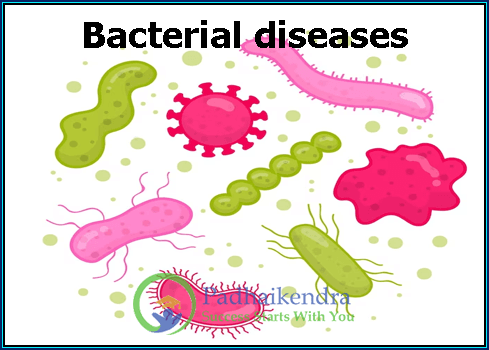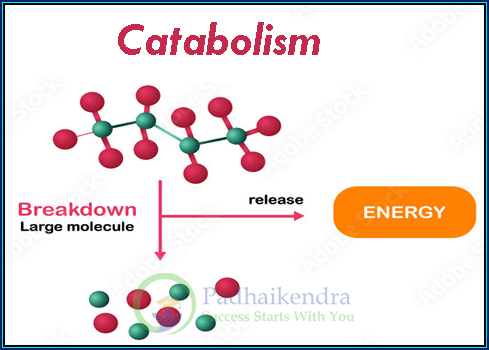- Introduction to Cretinism
Meaning and Historical Context
Thyroid Hormone Synthesis and Secretion
Introduction to Cretinism: Understanding Its Meaning and Historical Context
Cretinism is a term used to describe a severe form of congenital hypothyroidism that results from the inadequate production of thyroid hormones during fetal development or early infancy. Thyroid hormones play a crucial role in regulating various physiological processes, including metabolism, growth, and development of the central nervous system. When these hormones are deficient, it can lead to significant developmental and intellectual impairments. In this article, we will delve into the meaning of cretinism, its historical context, and the intricate process of thyroid hormone synthesis and secretion.
Meaning and Historical Context
Cretinism derives its name from the French word “crétin,” which was originally used to describe individuals from the Alpine regions of Europe who exhibited severe intellectual and physical disabilities. It was later discovered that these disabilities were linked to thyroid hormone deficiency. Cretinism can manifest in two distinct forms: neurological cretinism and myxedematous cretinism.
Neurological Cretinism: This form of cretinism primarily affects the central nervous system. It leads to profound developmental delays, intellectual disabilities, impaired speech and motor skills, and a characteristic appearance, including a protruding tongue and puffy facial features.
Myxedematous Cretinism: In this form, the focus is on the physical manifestations of hypothyroidism, such as delayed growth, coarse facial features, and dry, thickened skin. It is often accompanied by intellectual impairment, but the neurological effects are less severe compared to neurological cretinism.
The historical context of cretinism is rooted in the early observations made by physicians and scientists regarding the link between thyroid function and proper physical and cognitive development. In the 19th century, as medical understanding advanced, researchers like Sir William Osler and Victor Horsley conducted groundbreaking work in identifying the thyroid gland’s role in maintaining health and preventing conditions like cretinism.
Thyroid Hormone Synthesis and Secretion
The thyroid gland, located in the neck, is responsible for producing two essential hormones: thyroxine (T4) and triiodothyronine (T3). These hormones are synthesized through a complex process involving multiple steps.
Iodine Uptake: The first step in thyroid hormone synthesis is the uptake of iodine from the bloodstream. Iodine is a crucial element required for the synthesis of both T4 and T3.
Thyroglobulin Production: Thyroid cells produce a protein called thyroglobulin, which acts as a scaffold for thyroid hormone synthesis. Thyroglobulin is stored in the colloid-filled follicles of the thyroid gland.
Iodination of Tyrosine Residues: Within thyroglobulin, specific amino acid residues called tyrosine residues are iodinated. This process involves attaching iodine atoms to these tyrosine residues.
Coupling Reactions: Iodinated tyrosine residues within thyroglobulin are coupled together to form either T4 (two coupled tyrosine residues) or T3 (one tyrosine residue coupled with another iodinated tyrosine).
Endocytosis and Release: When the body requires thyroid hormones, thyroglobulin is taken up by thyroid cells through endocytosis. Enzymes within the cells then cleave T4 and T3 from thyroglobulin, releasing these hormones into the bloodstream.
Thyroid-Stimulating Hormone (TSH) Regulation: The production and release of thyroid hormones are regulated by the pituitary gland’s thyroid-stimulating hormone (TSH). When thyroid hormone levels are low, the pituitary gland releases TSH, which stimulates the thyroid gland to produce and release more hormones.
Feedback Mechanism: The hypothalamus-pituitary-thyroid axis maintains a delicate balance of thyroid hormone levels. High levels of thyroid hormones in the bloodstream inhibit the release of TSH, thus preventing excessive hormone production.
In the context of cretinism, a malfunction in any of these steps can result in insufficient thyroid hormone production, leading to the developmental and intellectual impairments associated with the condition.
Conclusion
Cretinism, with its historical origins and medical significance, highlights the crucial role that thyroid hormones play in human growth, development, and cognitive function. Understanding the complex process of thyroid hormone synthesis and secretion helps shed light on the intricate mechanisms underlying this condition. With advancements in medical science, early diagnosis and treatment of cretinism are now possible, preventing or mitigating the devastating effects of thyroid hormone deficiency on individuals’ lives.
- Understanding Types of Cretinism
Introduction of Cretinism
Types of Cretinism
Cretinism and Dwarfism
Understanding Types of Cretinism: Exploring Variants, Relationship with Dwarfism, and Implications
Cretinism, a term rooted in historical context, encompasses a range of congenital disorders caused by inadequate thyroid hormone production during fetal development or infancy. Thyroid hormones are integral for proper growth, metabolism, and neurological development. In this article, we will delve into the different types of cretinism, the correlation between cretinism and dwarfism, and the implications these conditions hold.
Introduction to Cretinism
Cretinism, as explained in the previous article, refers to severe congenital hypothyroidism. Thyroid hormones, primarily thyroxine (T4) and triiodothyronine (T3), play a critical role in regulating the body’s metabolic rate, brain development, and overall growth. When there is a deficiency of these hormones during critical periods of development, it can lead to significant physical and cognitive impairments.
Types of Cretinism
Cretinism presents in two primary forms: neurological cretinism and myxedematous cretinism. Each form has distinct characteristics and implications.
Neurological Cretinism:
Neurological cretinism is marked by profound developmental delays and intellectual disabilities due to the absence or insufficient levels of thyroid hormones during early brain development. This form is characterized by impaired motor skills, speech difficulties, and a distinct facial appearance, including a protruding tongue and puffy features. Seizures and other neurological issues may also occur. Early diagnosis and treatment with thyroid hormone replacement therapy are vital to prevent or mitigate the severe cognitive deficits associated with this type of cretinism.
Myxedematous Cretinism:
Myxedematous cretinism primarily affects physical development, leading to delayed growth and maturation. This form of cretinism often manifests in coarser facial features, dry and thickened skin, and potential skeletal abnormalities. Intellectual impairment is present but typically less severe than in neurological cretinism. Treatment with thyroid hormone replacement therapy is equally important in this form to promote growth, development, and overall well-being.
Cretinism and Dwarfism
Dwarfism is a condition characterized by significantly shorter stature than average. While cretinism and dwarfism are distinct conditions, they can sometimes be related due to the overlap of underlying causes and shared physical manifestations.
Cretinism can contribute to dwarfism through several mechanisms:
Skeletal Growth and Development: Thyroid hormones play a critical role in bone growth and skeletal maturation. Deficient thyroid hormone levels can result in delayed bone age and growth plate closure, leading to shorter stature.
Impaired Growth Hormone Regulation: Thyroid hormones interact with the growth hormone axis, and a deficiency in thyroid hormones can affect the regulation of growth hormone secretion, further impacting overall growth.
Muscle Development and Strength: Thyroid hormones influence muscle development and strength. Insufficient thyroid hormone levels can lead to muscle weakness and reduced muscle mass, contributing to the appearance of dwarfism.
Delayed Puberty: Inadequate thyroid hormones can delay the onset of puberty, which in turn affects the growth spurt that usually occurs during adolescence. This delayed growth spurt can result in shorter stature.
Implications and Treatment
Understanding the different types of cretinism and their potential interactions with dwarfism underscores the importance of early detection, diagnosis, and treatment. Thyroid hormone replacement therapy is the cornerstone of managing cretinism. Administering synthetic thyroid hormones helps restore the body’s hormone balance, promoting proper physical and cognitive development. In cases where developmental delays or growth abnormalities have occurred, additional interventions, such as physical therapy or growth hormone therapy, may be considered.
Conclusion
Cretinism, with its distinct types and potential interactions with dwarfism, highlights the intricate relationship between thyroid hormones, growth, and neurological development. Timely diagnosis and appropriate treatment are paramount in addressing the challenges posed by cretinism, aiming to improve the quality of life for individuals affected by these conditions. As medical knowledge advances, continued research and comprehensive care strategies offer hope for better outcomes and a brighter future for those impacted by these complex disorders.
III. Exploring Causes and Iodine Requirements
Cretinism Causes
Iodine Requirements in Pregnancy
Cretinism Prevention
Exploring Causes and Iodine Requirements: Understanding Cretinism and the Vital Role of Iodine
Cretinism, a condition rooted in thyroid hormone deficiency, has multifaceted causes and implications that extend beyond individual health. One of the key factors influencing cretinism is iodine deficiency, particularly during pregnancy. In this article, we delve into the causes of cretinism, the critical importance of iodine during pregnancy, and strategies for its prevention.
Cretinism Causes
Cretinism arises due to a disruption in the production and secretion of thyroid hormones, primarily thyroxine (T4) and triiodothyronine (T3). This disruption can result from various factors:
Iodine Deficiency: Iodine is an essential component for thyroid hormone synthesis. A lack of sufficient dietary iodine hampers the thyroid gland’s ability to produce thyroid hormones, leading to cretinism. Iodine deficiency is a primary cause, particularly in regions with limited access to iodine-rich foods.
Thyroid Gland Disorders: Abnormalities in the thyroid gland’s structure or function can lead to inadequate hormone production. Congenital abnormalities, autoimmune disorders like Hashimoto’s thyroiditis, and other genetic factors can contribute to thyroid dysfunction.
Enzymatic Defects: Genetic mutations affecting enzymes involved in thyroid hormone synthesis or conversion can disrupt the production of functional thyroid hormones.
Maternal Thyroid Disorders: Maternal thyroid disorders during pregnancy can impact fetal thyroid hormone levels. An untreated maternal hypothyroidism can lead to thyroid hormone deficiency in the developing fetus, potentially resulting in cretinism.
Iodine Requirements in Pregnancy
During pregnancy, the demand for thyroid hormones increases significantly to support fetal growth and development. Adequate maternal thyroid hormone levels are crucial for the developing fetus, especially during the early stages when the fetal thyroid gland is not fully functional. Iodine plays a pivotal role in ensuring proper thyroid function, making iodine requirements particularly important during pregnancy.
Iodine deficiency during pregnancy can lead to:
Impaired fetal brain development
Intellectual and cognitive deficits
Delayed physical growth
Risk of cretinism in the newborn
Increased maternal and fetal mortality
Cretinism Prevention
Preventing cretinism and addressing iodine deficiency require a multi-pronged approach:
Iodized Salt: One of the most effective methods of preventing iodine deficiency is the consumption of iodized salt. Iodized salt contains a controlled amount of iodine, ensuring that individuals receive an adequate intake of this essential element.
Education and Awareness: Public health campaigns play a critical role in raising awareness about the importance of iodine in the diet, particularly during pregnancy. Educating communities about the risks of iodine deficiency and promoting the consumption of iodine-rich foods can help prevent cretinism.
Supplementation: In regions where iodine deficiency is prevalent, iodine supplementation may be necessary, especially for pregnant women. Healthcare providers can offer guidance on appropriate supplementation to ensure healthy fetal development.
Prenatal Care: Regular prenatal care includes monitoring maternal thyroid function and addressing any thyroid disorders promptly. Treating maternal hypothyroidism can help prevent thyroid hormone deficiency in the fetus.
Dietary Diversity: Encouraging a diverse and balanced diet that includes iodine-rich foods, such as seafood, dairy products, and fortified foods, can contribute to meeting iodine requirements.
Conclusion
Cretinism, driven by thyroid hormone deficiency, underscores the importance of a functioning thyroid gland and sufficient iodine intake. Recognizing the causes of cretinism, especially iodine deficiency, and understanding its potential impact during pregnancy can guide efforts toward prevention. By promoting awareness, implementing iodized salt programs, providing appropriate prenatal care, and advocating for dietary diversity, we can take significant steps in ensuring optimal maternal and fetal health, reducing the risk of cretinism, and fostering healthier generations to come.
- Unveiling Symptoms and Diagnosis
Symptoms of Cretinism
Diagnosis of Cretinism
Maternal Urinary Iodine Concentration
Neonatal Screening
Imaging Studies
Unveiling Symptoms and Diagnosis of Cretinism: Identifying the Signs and Navigating Diagnostic Avenues
Cretinism, characterized by thyroid hormone deficiency, manifests in various ways, affecting both physical and cognitive development. Early diagnosis is crucial for effective management. In this article, we explore the symptoms of cretinism, the diagnostic process, the significance of maternal urinary iodine concentration, neonatal screening, and the role of imaging studies.
Symptoms of Cretinism
Cretinism’s symptoms stem from inadequate thyroid hormone levels, affecting numerous bodily functions:
Delayed Growth and Development: Individuals with cretinism often exhibit delayed growth, leading to short stature. Physical development, including skeletal maturation and muscle tone, can also be affected.
Coarse Facial Features: Myxedematous cretinism may present with facial features such as a broad nose, thickened lips, and a protruding tongue, giving a distinct appearance.
Intellectual Impairment: Neurological cretinism is marked by severe cognitive deficits, including intellectual disabilities, impaired speech, and limited motor skills.
Dry Skin and Hair: Skin and hair can become dry, coarse, and thickened due to decreased thyroid hormone activity.
Constipation and Sluggishness: Reduced metabolism can lead to constipation and a general sense of sluggishness and fatigue.
Hypotonia: Decreased muscle tone or hypotonia is common in cretinism and contributes to motor skill delays.
Diagnosis of Cretinism
Accurate diagnosis of cretinism involves a comprehensive approach that includes various methods:
Clinical Evaluation: A thorough physical examination can reveal characteristic features like coarse facial traits, delayed growth, and hypotonia.
Blood Tests: Measuring thyroid hormone levels (T4 and T3) and thyroid-stimulating hormone (TSH) in the blood helps identify hormonal imbalances associated with cretinism.
Maternal Urinary Iodine Concentration: Monitoring the iodine levels in maternal urine during pregnancy is crucial. Low iodine levels in the mother can lead to fetal thyroid hormone deficiency.
Neonatal Screening: Newborns are screened for congenital hypothyroidism, including cretinism. Elevated TSH levels and low thyroid hormone levels suggest the presence of the condition.
Imaging Studies: Radiological imaging, such as ultrasound, can help assess the size and structure of the thyroid gland. Thyroid imaging aids in identifying structural abnormalities or gland hypoplasia.
Maternal Urinary Iodine Concentration
Maternal urinary iodine concentration serves as an indirect indicator of iodine intake during pregnancy. Low urinary iodine levels in pregnant women indicate insufficient iodine intake, which can impact fetal thyroid hormone production and brain development. Monitoring maternal iodine levels is a crucial step in preventing cretinism and ensuring optimal fetal health.
Neonatal Screening
Neonatal screening programs play a pivotal role in early cretinism detection. A simple blood test conducted shortly after birth measures TSH levels. Elevated TSH levels, along with low thyroid hormone levels, indicate a potential thyroid disorder, allowing for timely intervention and treatment.
Imaging Studies
Imaging studies, such as ultrasound, provide visual insights into the thyroid gland’s structure and size. Imaging is particularly helpful when there are suspicions of thyroid gland abnormalities or hypoplasia. It aids in diagnosing anatomical issues that contribute to cretinism.
Conclusion
Cretinism’s diverse symptoms underscore the importance of prompt and accurate diagnosis to ensure timely intervention. The diagnostic journey involves a combination of clinical evaluation, blood tests, maternal urinary iodine concentration monitoring, neonatal screening, and imaging studies. Early detection empowers healthcare professionals to initiate appropriate interventions, including thyroid hormone replacement therapy, dietary adjustments, and supportive therapies, thereby improving the quality of life for individuals affected by cretinism. It is through a multidimensional diagnostic approach that we can unravel the complexities of cretinism and pave the way for effective management and improved outcomes.
- Comprehensive Treatment Approaches
Treatment of Cretinism
Cretinism Treatment
Re-evaluation
Comprehensive Treatment Approaches for Cretinism: Navigating the Path to Health and Well-being
Cretinism, a condition rooted in thyroid hormone deficiency, demands a multi-faceted approach for effective treatment. The significance of timely interventions cannot be overstated, as they play a pivotal role in enhancing both physical and cognitive development. In this article, we delve into the comprehensive treatment strategies for cretinism, emphasizing the importance of tailored approaches and ongoing re-evaluation.
Treatment of Cretinism
Successful management of cretinism revolves around restoring normal thyroid hormone levels to ensure optimal growth, development, and overall well-being. The cornerstone of treatment is thyroid hormone replacement therapy, typically administered in the form of synthetic levothyroxine (T4). This therapy aims to compensate for the deficiency of thyroid hormones and alleviate the associated symptoms.
Cretinism Treatment
Thyroid Hormone Replacement: Synthetic levothyroxine is administered orally to replace the deficient thyroid hormones. The dosage is carefully adjusted based on factors like age, weight, and severity of the condition. Monitoring thyroid hormone levels and clinical progress is crucial for achieving the desired therapeutic effect.
Early Intervention: Initiating treatment as early as possible is paramount, especially for neurological cretinism. Early intervention can help mitigate the cognitive deficits and developmental delays associated with the condition.
Continued Monitoring: Regular follow-up appointments with healthcare providers are essential to assess the progress of treatment and adjust medication dosages as needed.
Dietary Considerations: Ensuring an iodine-sufficient diet is crucial to support thyroid hormone production. In regions with iodine deficiency, dietary education and promotion of iodized salt can contribute to effective treatment.
Supportive Therapies: Depending on the severity of symptoms, individuals with cretinism may benefit from various supportive therapies, such as speech therapy, physical therapy, and special education programs.
Re-evaluation
Constant re-evaluation is integral to cretinism management. As individuals grow and develop, their needs evolve, necessitating adjustments to treatment strategies:
Dosage Adjustments: Hormone replacement therapy dosages may need to be recalibrated as individuals age and their metabolic needs change. Regular monitoring of thyroid hormone levels helps in maintaining the optimal dosage.
Cognitive and Developmental Interventions: For those with neurological cretinism, cognitive and developmental interventions may be required as the individual progresses through different life stages.
Transition to Adulthood: The transition to adulthood brings unique challenges. Young adults with cretinism require careful monitoring to ensure continued thyroid hormone replacement and address potential concerns regarding reproductive health and bone health.
Pregnancy and Fertility: Pregnant individuals with a history of cretinism require specialized care to ensure proper thyroid function during pregnancy, as thyroid hormones play a crucial role in fetal development.
Conclusion
Cretinism treatment is a dynamic process that evolves with the individual’s growth and development. The combination of thyroid hormone replacement therapy, dietary considerations, and supportive interventions lays the foundation for improved quality of life. Early intervention, coupled with ongoing monitoring and re-evaluation, facilitates a comprehensive approach to managing cretinism’s symptoms and challenges. By tailoring treatments to meet individual needs and addressing potential complications, healthcare professionals can empower individuals with cretinism to achieve their fullest potential, ensuring a brighter and healthier future.
- Implications and Prognosis
Congenital Hypothyroidism Prognosis
Implications and Prognosis of Cretinism and Congenital Hypothyroidism
Cretinism, a severe manifestation of congenital hypothyroidism, has significant implications for both affected individuals and society as a whole. Understanding the long-term consequences and prognosis of these conditions is essential to guide treatment strategies, provide appropriate support, and promote positive outcomes. In this article, we delve into the implications and prognosis of cretinism and congenital hypothyroidism.
Implications of Cretinism and Congenital Hypothyroidism
Neurodevelopmental Impact: One of the most profound implications of cretinism and congenital hypothyroidism is their potential to cause severe neurodevelopmental deficits. Insufficient thyroid hormones during critical periods of brain development can result in intellectual disabilities, speech and motor delays, and learning challenges.
Physical Growth and Maturation: Delayed physical growth and skeletal maturation are common consequences of thyroid hormone deficiency. This can lead to short stature and other physical abnormalities that affect an individual’s overall appearance and self-esteem.
Cognitive and Emotional Challenges: Individuals with cretinism or congenital hypothyroidism might face challenges in cognitive function, affecting their educational attainment, job prospects, and social interactions. Emotional well-being can also be compromised due to these challenges.
Quality of Life: The impact of cretinism and congenital hypothyroidism on an individual’s quality of life is significant. Daily functioning, independence, and overall well-being can be compromised, particularly when interventions are delayed or inadequate.
Reproductive and Fertility Implications: If left untreated, thyroid hormone deficiency can affect reproductive health and fertility in individuals with cretinism or congenital hypothyroidism. Proper management and treatment are crucial to mitigate these risks.
Congenital Hypothyroidism Prognosis
The prognosis of cretinism and congenital hypothyroidism varies based on factors such as early diagnosis, the severity of the condition, and the adequacy of treatment. With timely intervention and appropriate management:
Neurodevelopmental Outcomes: Early detection and treatment significantly improve neurodevelopmental outcomes. Individuals who receive thyroid hormone replacement therapy early in life are more likely to achieve age-appropriate cognitive and motor milestones.
Physical Growth: Proper thyroid hormone replacement therapy can support normal physical growth and maturation, helping to mitigate short stature and other physical complications.
Quality of Life: Adequate treatment and supportive interventions enhance the quality of life for individuals with cretinism and congenital hypothyroidism. Addressing cognitive challenges and providing educational and emotional support can contribute to a more fulfilling life.
Reproductive Health: With proper thyroid hormone replacement therapy, individuals can maintain normal reproductive health and fertility outcomes.
Conclusion
Cretinism and congenital hypothyroidism have wide-ranging implications that extend beyond physical health to impact neurodevelopment, emotional well-being, and overall quality of life. The prognosis for individuals with these conditions greatly depends on early diagnosis, prompt treatment, and comprehensive support throughout their lives. By fostering awareness, ensuring access to timely interventions, and promoting ongoing research, healthcare professionals can contribute to improving the long-term outcomes and quality of life for individuals affected by cretinism and congenital hypothyroidism.
VII. Conclusion and Future Prospects
Conclusion and Future Prospects: A Holistic Approach to Cretinism and Congenital Hypothyroidism
The journey through understanding cretinism and congenital hypothyroidism has unveiled the intricate interplay between thyroid hormones, development, and overall well-being. These conditions, rooted in thyroid hormone deficiency, emphasize the need for comprehensive approaches that encompass early detection, timely interventions, and ongoing support. As we conclude this exploration, let us reflect on the significance of our insights and the potential future prospects for managing these complex disorders.
A Holistic Approach to Treatment
The complexities of cretinism and congenital hypothyroidism underscore the importance of a holistic approach to treatment. From early diagnosis to tailored interventions and supportive therapies, addressing both the physical and cognitive dimensions of these conditions is paramount. Through this approach, we can optimize the quality of life for affected individuals, enabling them to reach their potential and contribute meaningfully to society.
Collaborative Efforts and Advocacy
The journey toward effective management of cretinism and congenital hypothyroidism involves collaborative efforts from healthcare professionals, researchers, policymakers, families, and communities. Advocacy for increased awareness, access to diagnostic tools, and interventions is crucial to ensure that these conditions are recognized and treated promptly.
Advancements in Medical Science
Advancements in medical science hold promise for enhancing the diagnosis and treatment of cretinism and congenital hypothyroidism. From improved diagnostic techniques to innovative therapeutic approaches, ongoing research offers hope for more tailored and effective interventions.
Preventive Strategies
Preventing cretinism and congenital hypothyroidism through iodine supplementation and public health campaigns remains a cornerstone of future prospects. By ensuring adequate maternal iodine intake and promoting iodized salt consumption, we can potentially reduce the prevalence of these conditions and their associated complications.
Enhanced Quality of Life
As we look to the future, the ultimate goal is to enhance the quality of life for individuals affected by cretinism and congenital hypothyroidism. With a focus on early detection, individualized treatment plans, and ongoing support, we can pave the way for brighter futures, improved cognitive development, and better physical health.
In Conclusion
The journey through cretinism and congenital hypothyroidism has illuminated the intricate web of factors that influence these conditions. From their historical roots to the far-reaching implications, our exploration underscores the importance of proactive interventions, comprehensive care, and continued research. As we move forward, let us remain committed to fostering awareness, advancing medical knowledge, and providing a supportive environment for individuals affected by these conditions. Through our collective efforts, we can shape a future where cretinism and congenital hypothyroidism are better understood, effectively managed, and ultimately, conquered.





